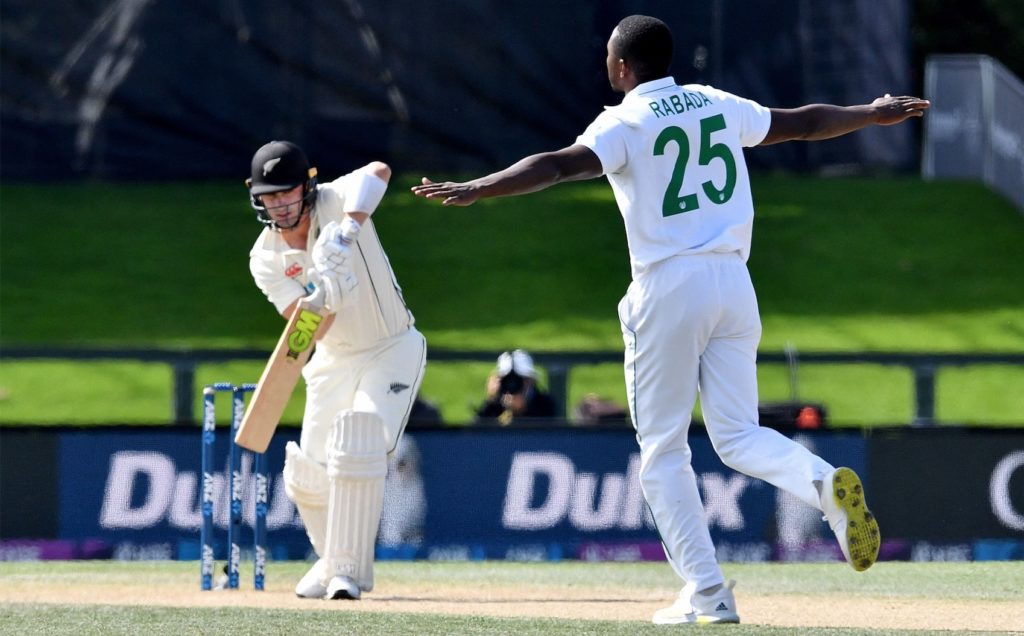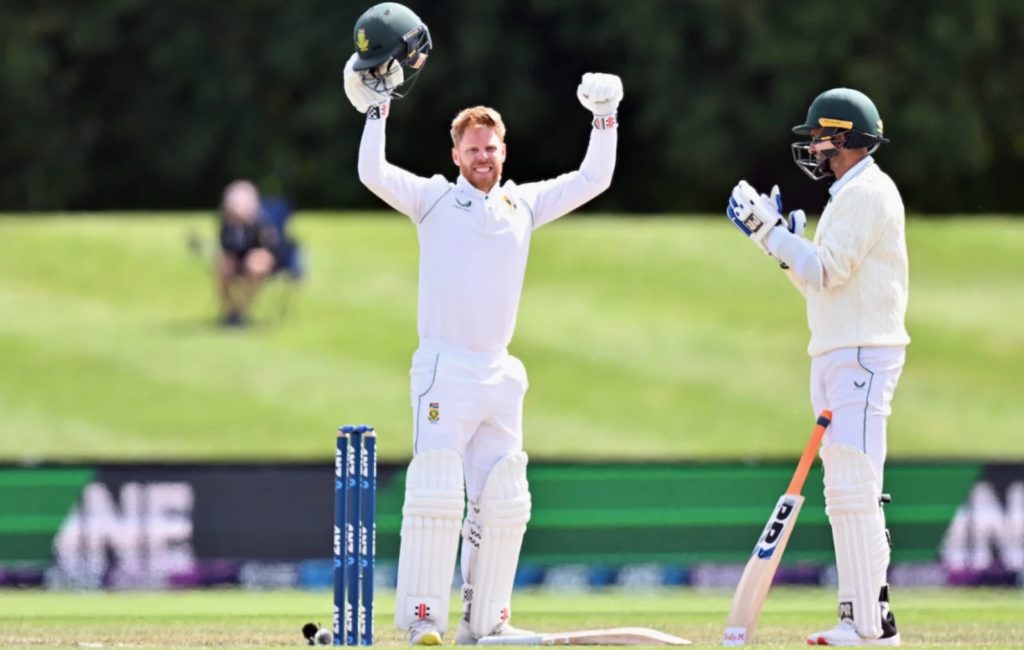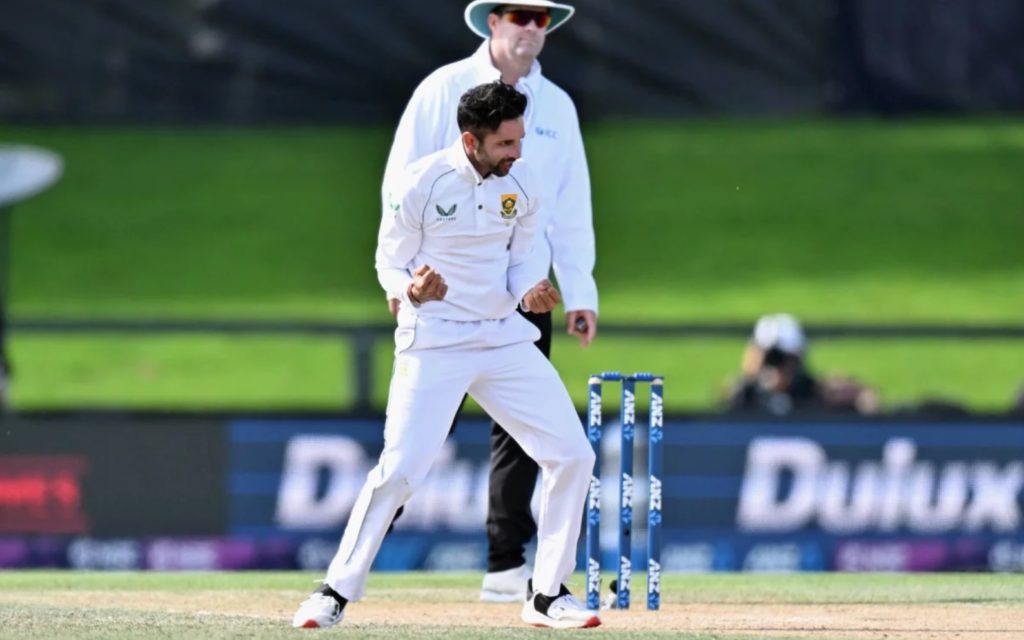RYAN VREDE analyses the key learnings from a Proteas’ Test victory over New Zealand that came just six days after a humiliating defeat.
I don’t know how they managed to turn around an innings-and-276-run defeat in under a week. In rugby terms, that equates to the Springboks losing 50-0 to the All Blacks in Christchurch, then beating them 32-10 at the same venue a week later. In football terms, it is like overturning a 4-0 away defeat in the first leg of a cup competition, then winning 5-0 in the second leg.
It was an incredible sporting feat, and all credit must go to the Proteas players and leadership for that performance. These were the five standout lessons I learned from the bounce-back.
Keshav Maharaj is a national treasure and should always play
Kagiso Rabada (more on him in a bit) was the standout bowler in the Test match, but I’d argue none were more valuable than Maharaj.
He wasn’t selected for the first Test and the Proteas deeply missed him. His ability to put the brakes on one end is invaluable in the context of the attack’s overall potency. The pressure he created immeasurably benefited the seamers operating from the other end, as the Black Caps batters looked for a release.
I understand the cricket reasons for his omission in the first Test, but I think his performance in the second underlines the fact that he is incredibly valuable in all conditions.
Kagiso Rabada is among the world’s best … when he’s in the mood

Frustratingly, for the past few years, it has felt like Rabada has drifted through sessions, sometimes even entire Test matches.
His threat is significantly blunted when he is bowling in the low 130s, which has become an all-too-common occurrence. I’m not alone in my frustration with Rabada. Proteas skipper Dean Elgar admitted that he had to give the fast bowler a stern talking to during the second Test against India at the Wanderers in January. He responded in the first session, claiming the wickets of Ajinkya Rahane, Cheteshwar Pujara and Rishabh Pant.
A skipper shouldn’t have to have this conversation with a bowler of Rabada’s quality and experience. And I doubt that was the last time Elgar did so. In the first Test against the Black Caps, Rabada again looked a shadow of the bowler he should be. He showed up when the team needed him most, but his inconsistency is deeply concerning.
Aiden Markram was lucky to be picked but should be dropped
Markram was expected to be released from his misery (he averaged 9.7 in his last 10 innings coming into the second Test) but somehow the selectors retained the chronic failure.
He batted well in the first innings before, you guessed it, knicking off to slip. It’s a method of dismissal that has become commonplace for the 27-year-old.
He has technical and mental deficiencies that need to be addressed. That needs to happen at first-class level, not at the format’s premier one.
The Markram experiment must end. Keegan Petersen should come back in for the series against Bangladesh at the end of March while Markram, who is undoubtedly a talented player, remedies those things that have undermined his form.
Kyle Verreynne is worth the investment

Verreynne averaged under 30 after seven innings coming into the second Test and, as someone who has advocated for his inclusion for 18 months, I started to think he may not have the temperament to match his talent.
His second-innings century eased those concerns. Considering he came in at 105-4, which soon became 114-5, and carried his bat in a match-defining innings, and against a world-class attack, speaks to the quality of player he is.
He may stutter before he soars, but he is worth the investment.
The team is developing a distinct identity
I’ve seen this described as grit and resilience, but that is only one dimension of their identity.
Composure under pressure, and the clarity of thought that comes from that, has allowed them to weather challenging periods and contributed significantly to their success against India, and in the second Test against New Zealand.
Where they’d crumbled against England in early 2020, and against Pakistan in 2021, they’ve now learned to absorb pressure and respond in ways that help them win.
They still have moments where things fall apart, but this is understandable given the relative inexperience in the group. But they are certainly starting to develop a distinct identity, which is rooted in their ability to withstand immense pressure.
ALSO READ: Batting the key to Proteas breaking into Test elite







